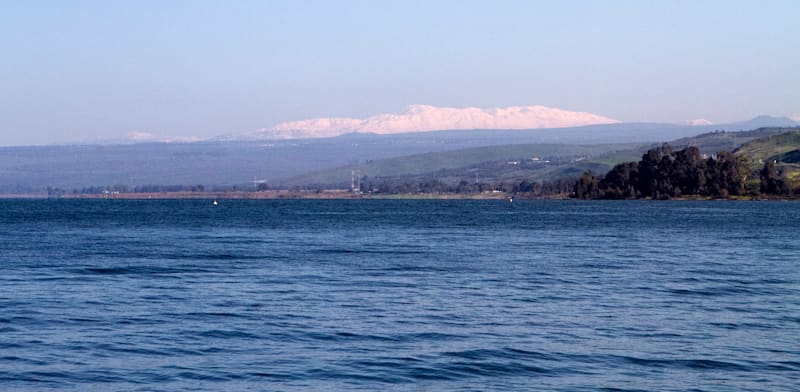Real-time water temperature monitoring networks have become increasingly more common as resource managers seek to make more informed decisions about the water bodies they oversee. While some short-term decisions are made using real-time data, more long-term planning relies on forecasting. These ecological forecasts are powered by data collected over time, but a 2023 study published in Ecosphere asks how frequently data assimilation must occur for a forecast model to produce the most accurate (often referred to as skilled) forecasts over various time periods.1
Methods

A view of Gloucester’s Beaverdam Reservoir & Park near sunset. (Credit: Matthew W. King via Wikimedia Commons CC BY-SA 4.0)
Three research questions were observed over the course of the study. First, they sought to answer the question of what frequency of data assimilation generated the most skillful water temperature forecasts.
Second, they asked how “forecast skill vary across time (specifically focusing on the mixed vs. stratified seasons within a year) and space (i.e., reservoir depth).”1 Third, they examined how data assimilation frequency influences total forecast uncertainty and the relative contribution of initial condition uncertainty to total forecast uncertainty.
Less frequent assimilation was expected to result in decreased forecast skill and increased uncertainty. Additionally, forecast skill was expected to be better at deeper depths, especially during stratified periods. 1
Starting in June 2020, real-time water column data was recorded in Beaverdam Reservoir, Virginia. Multiple NexSens T-Node FR Temperature Sensors were deployed at 1m intervals from the surface to sediment, and a YSI EXO2 sonde monitored water temperature at 1.5m at the deepest site in the reservoir.
Sensors collected data every 10 minutes, which were then assimilated into the Forecasting Lake And Reservoir Ecosystems (FLARE) system at different rates to test what frequency was most skilled.
The data assimilation frequencies tested were daily, weekly, fortnightly, or monthly; and the forecast horizons ranged from 1, 7, and 35 day-ahead forecasts.
Results
Ultimately, the researchers were able to successfully forecast water temperature throughout the water column over the year using data assimilation to update models and parameters. Generally, high forecast skill was observed across all depths and time of year for most horizons.
Daily assimilation resulted in more variable parameter estimates over time for longwave radiation scaling and epilimnetic and hypolimnetic sediment temperature parameters.
For a 1-day-ahead forecast horizon, daily assimilation was the most skilled. Weekly data assimilations were most skilled at longer horizons (8-35 days).
Overall, the study notes a trend of lower frequency data assimilation outperforming daily assimilation as the forecast horizon increased.
However, water temperature forecast skill varied (between weekly and daily) among depths, forecast horizons, and time of year (stratification), and therefore assimilation frequency should be chosen based on the application.
The study concludes that weekly water temperature observations are likely “good enough” to set up a skillful forecasting system for many management applications, while daily assimilation would be most useful for applications requiring high forecast accuracy in deeper waters or at shorter forecast horizons.1
Source
- Wander, H. L., Thomas, R. Q., Moore, T. N., Lofton, M. E., Breef-Pilz, A., & Carey, C. C. (2024). Data assimilation experiments inform monitoring needs for near-term ecological forecasts in a eutrophic reservoir. Ecosphere, 15(2), e4752. https://doi.org/10.1002/ecs2.4752








Leave a Comment